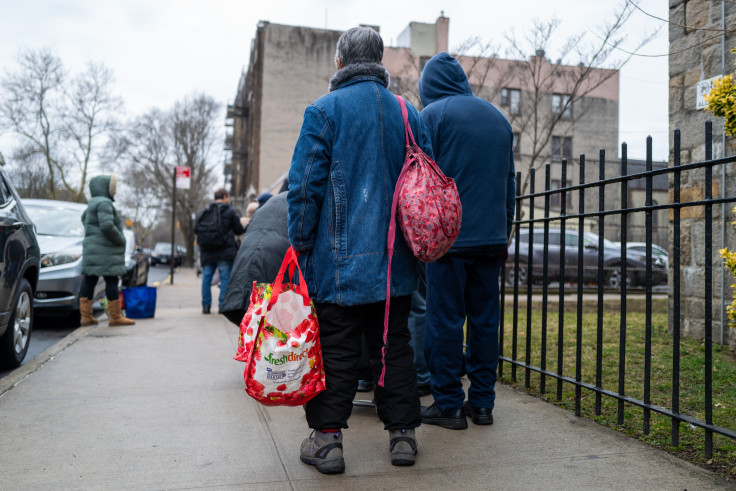
Immigrant communities in the Washington, D.C. area are increasingly avoiding food assistance programs, citing fears of detention and deportation under the Trump administration's immigration policies, Axios reports.
According to sources, food aid lines, which typically serve thousands of families, have seen noticeable declines, raising concerns about worsening food insecurity amid inflation and government rollbacks.
Pastor Abdul Sesay, who leads City of Light Helping Hands in Montgomery County, told Axios that the church-based food pantry, which distributes groceries and cultural food items to African, Latino, and Asian communities, has seen a roughly 15% decrease in participation. The organization has also noticed a drop in immigrant volunteers, reflecting broader apprehensions about congregating in public spaces.
Jennifer Ayers, executive director of the nonprofit Alive! in Alexandria, Virginia, also reported lower-than-expected turnout at their food distributions, which typically assist 5,000 families per month.
The hesitancy mirrors patterns from Trump's first term, when many immigrants withdrew from public benefit programs, such as SNAP, fearing that participation could make them vulnerable to immigration enforcement. Similar fears seem to be resurfacing, as Trump's executive orders expand ICE's authority to operate in sensitive locations such as schools and churches, set arrest quotas, and propose the use of Guantanamo Bay for detaining undocumented immigrants.
"I've seen firsthand how the current immigration climate is affecting both documented and undocumented immigrants, creating a culture of fear that is preventing many from accessing essential services and legal protections," said immigration attorney Nicole Whitaker to The Latin Times.
Even though she has seen consultations by undocumented immigrants in her Maryland practice more than double compared to this time last year, she's also witnessed many clients who are too afraid of "getting on the radar," as she explains it:
"I have a client who owns businesses in both the U.S. and his home country in Central America. His ultimate goal is to travel freely between the two, which he can do once he gets his green card—but that process could take three to five years. Even though he has U.S. citizen children and a strong case for legal status, he's hesitant to move forward. He worries about how long the case will take and whether he could be arrested in the meantime"
Whitaker believes that attempts to stoke fear into immigrants, both legal and undocumented, should not deprive them from seeking legal counsel to understand their rights and protect themselves:
"Media coverage and political rhetoric have fueled a sense of crisis that is paralyzing immigrant communities. My message to immigrants is this: know your rights, continue living your life, and now, more than ever, it's important to take steps to secure legal status. Now is the time to consult with an immigration attorney to understand your options and protect yourself over the next four years"
© 2025 Latin Times. All rights reserved. Do not reproduce without permission.







